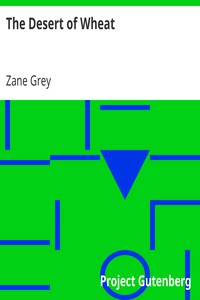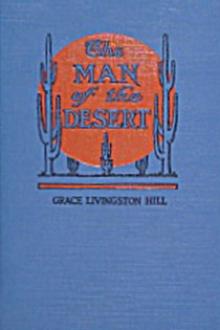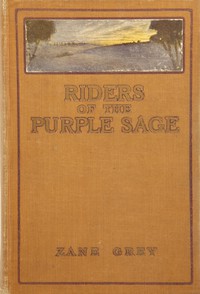The Desert of Wheat, Zane Grey [good non fiction books to read .TXT] 📗

- Author: Zane Grey
Book online «The Desert of Wheat, Zane Grey [good non fiction books to read .TXT] 📗». Author Zane Grey
1919
CHAPTER ILate in June the vast northwestern desert of wheat began to take on a tinge of gold, lending an austere beauty to that endless, rolling, smooth world of treeless hills, where miles of fallow ground and miles of waving grain sloped up to the far-separated homes of the heroic men who had conquered over sage and sand.
These simple homes of farmers seemed lost on an immensity of soft gray and golden billows of land, insignificant dots here and there on distant hills, so far apart that nature only seemed accountable for those broad squares of alternate gold and brown, extending on and on to the waving horizon-line. A lonely, hard, heroic country, where flowers and fruit were not, nor birds and brooks, nor green pastures. Whirling strings of dust looped up over fallow ground, the short, dry wheat lay back from the wind, the haze in the distance was drab and smoky, heavy with substance.
A thousand hills lay bare to the sky, and half of every hill was wheat and half was fallow ground; and all of them, with the shallow valleys between, seemed big and strange and isolated. The beauty of them was austere, as if the hand of man had been held back from making green his home site, as if the immensity of the task had left no time for youth and freshness. Years, long years, were there in the round-hilled, many-furrowed gray old earth. And the wheat looked a century old. Here and there a straight, dusty road stretched from hill to hill, becoming a thin white line, to disappear in the distance. The sun shone hot, the wind blew hard; and over the boundless undulating expanse hovered a shadow that was neither hood of dust nor hue of gold. It was not physical, but lonely, waiting, prophetic, and weird. No wild desert of wastelands, once the home of other races of man, and now gone to decay and death, could have shown so barren an acreage. Half of this wandering patchwork of squares was earth, brown and gray, curried and disked, and rolled and combed and harrowed, with not a tiny leaf of green in all the miles. The other half had only a faint golden promise of mellow harvest; and at long distance it seemed to shimmer and retreat under the hot sun. A singularly beautiful effect of harmony lay in the long, slowly rising slopes, in the rounded hills, in the endless curving lines on all sides. The scene was heroic because of the labor of horny hands; it was sublime because not a hundred harvests, nor three generations of toiling men, could ever rob nature of its limitless space and scorching sun and sweeping dust, of its resistless age-long creep back toward the desert that it had been.
Here was grown the most bounteous, the richest and finest wheat in all the world. Strange and unfathomable that so much of the bread of man, the staff of life, the hope of civilization in this tragic year 1917, should come from a vast, treeless, waterless, dreary desert!
This wonderful place was an immense valley of considerable altitude called the Columbia Basin, surrounded by the Cascade Mountains on the west, the Coeur d'Alene and Bitter Root Mountains on the east, the Okanozan range to the north, and the Blue Mountains to the south. The valley floor was basalt, from the lava flow of volcanoes in ages past. The rainfall was slight except in the foot-hills of the mountains. The Columbia River, making a prodigious and meandering curve, bordered on three sides what was known as the Bend country. South of this vast area, across the range, began the fertile, many-watered region that extended on down into verdant Oregon. Among the desert hills of this Bend country, near the center of the Basin, where the best wheat was raised, lay widely separated little towns, the names of which gave evidence of the mixed population. It was, of course, an exceedingly prosperous country, a fact manifest in the substantial little towns, if not in the crude and unpretentious homes of the farmers. The acreage of farms ran from a section, six hundred and forty acres, up into the thousands.
Upon a morning in early July, exactly three months after the United States had declared war upon Germany, a sturdy young farmer strode with darkly troubled face from the presence of his father. At the end of a stormy scene he had promised his father that he would abandon his desire to enlist in the army.
Kurt Dorn walked away from the gray old clapboard house, out to the fence, where he leaned on the gate. He could see for miles in every direction, and to the southward, away on a long yellow slope, rose a stream of dust from a motor-car.
"Must be Anderson—coming to dun father," muttered young Dorn.
This was the day, he remembered, when the wealthy rancher of Ruxton was to look over old Chris Dorn's wheat-fields. Dorn owed thirty-thousand dollars and interest for years, mostly to Anderson. Kurt hated the debt and resented the visit, but he could not help acknowledging that the rancher had been lenient and kind. Long since Kurt had sorrowfully realized that his father was illiterate, hard, grasping, and growing worse with the burden of years.
"If we had rain now—or soon—that section of Bluestem would square father," soliloquized young Dorn, as with keen eyes he surveyed a vast field of wheat, short, smooth, yellowing in the sun. But the cloudless sky, the haze of heat rather betokened a continued drought.
There were reasons, indeed, for Dorn to wear a dark and troubled face as he watched the motor-car speed along ahead of its stream of dust, pass out of sight under the hill, and soon reappear, to turn off the main road and come toward the house. It was a big, closed car, covered with dust. The driver stopped it at the gate and got out.
"Is this Chris Dorn's farm?" he asked.
"Yes," replied Kurt.
Whereupon the door of the car opened and out stepped a short, broad man in a long linen coat.
"Come out, Lenore, an' shake off the dust," he said, and he assisted a young woman to step out. She also wore a long





Comments (0)